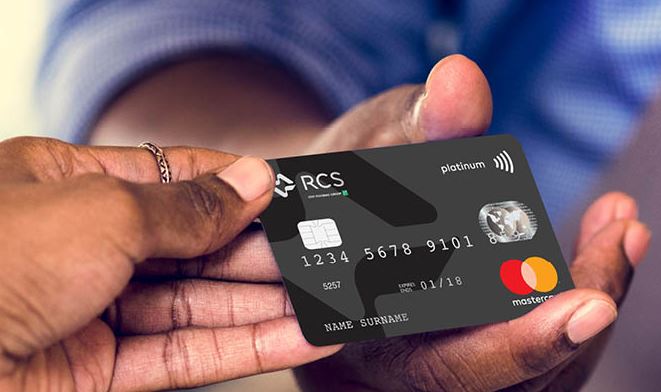In South Africa, frequent power cuts, known as “load shedding,” are driving the search for sustainable energy. Responding to this, First National Bank (FNB) launched a solar loan program.
This initiative, under the Energy Bounce Back (EBB) Loan Guarantee Scheme, encourages the use of solar energy. FNB’s “Personal Solar Loan Benefit” aims beyond immediate energy needs towards long-term sustainability.
The program offers competitive financing for solar solutions, reducing reliance on the national grid. This analysis will explore the program’s structure, benefits, and its role in South Africa’s renewable energy strategies.
Context of FNB’s Solar Loan Program
FNB’s “Personal Solar Loan Benefit” was launched in response to South Africa’s energy crisis, characterized by frequent power outages. This program offers financing for solar solutions at a prime +1% interest rate, aiming to provide sustainable energy options for businesses and households.
MJ Davis, CEO of FNB Loans, underscores the program’s significance in addressing energy security, a major challenge for individuals and businesses. This initiative not only meets the immediate need for alternative energy sources but also supports national sustainability and energy independence efforts. FNB’s involvement is key in South Africa’s transition towards renewable energy, promoting a shift to greener energy solutions.
Procedures and Requirements for Applying for the Solar Loan
The process for applying for the FNB solar loan is designed to be accessible and straightforward. Ensuring that consumers can easily obtain the necessary financing for their solar energy solutions. The steps involved are as follows:
- Obtaining a Quote: The first step for interested individuals is to obtain a quote from a reliable solar energy provider. This quote is crucial for determining the amount of the loan needed.
- Applying for an FNB Personal Loan: After obtaining the quote, the next step is to apply for an FNB Personal Loan. The loan amount should not exceed R300,000 and must be within 90% of the invoice or quote received from the provider.
- Loan Evaluation and Approval: FNB will evaluate the application and provide a quotation based on a personalized interest rate. Once approved, the bank will disburse the personal loan.
- Payment to the Supplier: With the loan approved and disbursed, the customer is responsible for making a payment to the solar energy provider as a deposit.
- Activation of the Solar Loan Benefit: After the deposit payment, the customer needs to access the FNB app to activate the Personal Solar Loan Benefit.
It is important to note that the interest rate will only be reduced to the promised amount (prime +1%) after the benefit is activated and all supporting documentation is verified. This activation process can take up to 10 business days, and the reduced rate is effective from the activation date, not retroactively.
Loan Requirements:
- The loan amount cannot exceed R300,000.
- At least 90% of the loan funds must be used for solar energy generation and related costs.
- Funds must be used for solar panels and other related expenses such as batteries, inverters, and installation costs.
- The benefit must be activated within 2 months (60 calendar days) after the disbursement of the FNB personal loan.
- Following the guidelines of the National Treasury’s Economic Borrowing Bill (EBB) Loan Guarantee Scheme, a customer can only benefit from one solar credit product.
These procedures and requirements ensure that the program is used responsibly and effectively, maximizing the benefits for customers and contributing to the country’s energy transition.
Advantages and Challenges of the Program
FNB’s solar loan program offers several significant advantages, both for consumers and the environment. At the same time, there are challenges that consumers may face when navigating the program.
Advantages of the Program:
Easy Access to Financing: One of the main advantages of the program is making access to financing for solar system installation easier. This is particularly important in a country where the initial cost can be a significant barrier to solar energy adoption.
Competitive Interest Rates: The program offers loans at an interest rate of prime +1%, which is a competitive rate, especially considering the nature of the solar energy investment.
Contribution to Sustainability: By encouraging the installation of solar systems, the program contributes to environmental sustainability by reducing dependence on non-renewable energy sources and decreasing greenhouse gas emissions.
Resilience Against Power Interruptions: For consumers, the program offers a way to become more resilient against frequent power cuts, ensuring a more stable and reliable source of energy.
Challenges of the Program:
Navigating Terms and Conditions: Consumers may encounter difficulties in navigating the specific terms and conditions of the program, especially regarding the activation of the benefit and compliance with loan usage requirements.
Verification and Activation of the Benefit: The verification and activation process of the benefit can be somewhat bureaucratic and take up to 10 business days, requiring patience and planning on the part of consumers.
Eligibility Limitations: Consumers who have already benefited from a solar credit product with FNB or another bank do not qualify for this benefit, which may limit options for some.
Financial Commitment: Although the program offers an affordable path to solar energy, it still represents a significant financial commitment, especially for those who opt for more comprehensive and expensive solutions.
Despite these challenges, FNB’s solar loan program represents a significant step towards energy sustainability and offers a valuable opportunity for many South Africans to reduce their dependence on traditional energy sources while contributing to a greener future.
The Program Within The Context Of The National Energy Crisis
The FNB solar loan program is an innovative response to the ongoing energy crisis in South Africa. This crisis is characterized by frequent power cuts and an energy infrastructure that struggles to meet growing demands. The program not only provides a practical solution to the immediate challenges faced by consumers but also aligns with broader national efforts to enhance the country’s energy resilience and sustainability.
Contribution to the National Energy Strategy:
- Mitigation of Load Shedding Effects: The program significantly contributes to alleviating the burden of load shedding (scheduled power cuts) by encouraging the adoption of solar energy. This reduces dependence on the national electrical grid, providing an alternative and reliable energy source.
- Support for Transition to Renewable Energies: By facilitating access to financing for solar solutions, the FNB program supports South Africa’s transition to more sustainable and renewable energy sources, a key goal of the national energy strategy.
- Complementarity with Other Initiatives: The program complements other FNB initiatives, such as the ecoEnergy home loan solution, and aligns with government tax incentives, as announced by President Cyril Ramaphosa and Finance Minister Enoch Godongwana. These incentives include tax rebates for installing solar panels in homes and tax benefits for companies investing in renewable energies.
Implementation Challenges and Impact:
- Overcoming Financial Barriers: While the program offers streamlined financing, there are still financial barriers that may prevent some consumers from taking advantage of these opportunities.
- Education and Awareness: Continuous education and awareness efforts are needed to inform consumers about the benefits of solar energy and how to make the most of the solar loan program.
- Long-Term Impact Assessment: It will be crucial to monitor and assess the long-term impact of the program on the national electrical grid and the solar energy market in South Africa.
In summary, the FNB solar loan program is more than just a temporary relief measure; it is an integral part of the long-term solution to South Africa’s energy crisis. It promotes the adoption of renewable energies and supports the country’s transition to a more sustainable and secure energy future. By addressing load shedding, encouraging renewable energy adoption, and aligning with government incentives, this program plays a pivotal role in shaping the nation’s energy strategy and resilience.
Fiscal and Governmental Implications
FNB’s solar loan program aligns not only with banking sector initiatives but also with broader fiscal and governmental policies in South Africa. These policies aim to encourage the adoption of renewable energies and alleviate pressure on the national electrical grid.
Tax Rebate for Solar Panel Installation: As announced by President Cyril Ramaphosa and detailed by Finance Minister Enoch Godongwana, individuals who install solar panels in their homes will be able to claim a tax rebate of 25% of the cost of the panels, up to a maximum of R15,000. This fiscal initiative is a strong incentive for homeowners to consider solar energy as a viable option.
Tax Benefits for Businesses: Additionally, businesses will be able to reduce their taxable income by 125% of the cost of an investment in renewable energies. These incentives are designed to encourage the business sector to invest in sustainable energy solutions. Support for Small and Medium
Enterprises: Changes to the Bounce Back Loan Guarantee Scheme will ensure solar energy-related loans for small and medium-sized enterprises, providing additional support to this crucial sector of the economy.
Governmental Challenges and Opportunities: Implementation and Impact of Policies: While these fiscal incentives are promising, their effective implementation and real impact on solar energy adoption remain critical challenges
Education and Promotion: The government and financial institutions like FNB have a crucial role in educating consumers and businesses about these incentives and promoting solar energy as a viable energy solution.
Monitoring and Evaluation: It will be essential to monitor and evaluate the impact of these policies and programs to ensure they meet the desired objectives of increasing renewable energy generation and reducing pressure on the electrical grid.
Digital acces and innovation:
In a digitally driven age, FNB is leveraging technology to make its solar loan program more accessible and convenient. The integration of digital solutions is a crucial aspect of the program, highlighting the bank’s commitment to innovation and user-friendliness for its customers.
Digital Facilitation of the Program:
Access through the FNB App: FNB allows customers to access a variety of alternative energy and backup solutions through the FNB app, providing a simplified and integrated user experience. This digital approach means that customers can easily manage their solar energy financing and purchases directly from their smartphones.
Fully Digitalized Application Process: The loan application process is entirely digitized, eliminating the need for paperwork and making the process faster and more efficient. This is especially important in a scenario where speed and ease of access are crucial for the adoption of renewable energy technologies.
Pre-Approved and Personalized Offers: The bank also plans to offer pre-approved options for energy solutions, adding an element of personalization and convenience for customers looking for energy solutions tailored to their specific needs.
Innovation and Future Impact:
Promotion of Renewable Energy Technology Adoption: By facilitating access to renewable energy solutions through digital platforms, FNB is not only providing a financial service but actively promoting the adoption of sustainable technologies.
Impact on Energy Efficiency: Easy access and digital management of solar loans can lead to faster and more efficient adoption of solar energy systems, significantly contributing to energy efficiency and reducing the carbon footprint.
Digitalization Trend in the Banking Sector: FNB’s approach also reflects a broader trend of digitalization in the banking sector, where financial services are increasingly integrated with technological solutions to enhance the customer experience.
The integration of digital solutions into FNB’s solar loan program is an example of how technological innovation can be used to not only improve banking services but also drive significant changes toward a more sustainable future.
These fiscal and governmental policies, along with private sector initiatives like FNB’s solar loan program, represent a coordinated effort to address South Africa’s energy crisis and promote a more sustainable energy future.
FNB’s solar loan program in South Africa represents a significant step towards energy sustainability and resilience. This program not only addresses the urgent need for reliable and sustainable energy sources amid the country’s energy crisis but also aligns with broader government policies aimed at promoting renewable energy generation.
By offering affordable financing for solar energy solutions, FNB is playing a crucial role in South Africa’s energy transition, encouraging both individuals and businesses to reduce their reliance on non-renewable energy sources.
Final Reflections:
Transformative Impact: The program has the potential to significantly transform South Africa’s energy landscape, reducing the country’s dependence on conventional energy and increasing the adoption of renewable energies.
Challenges and Opportunities: Despite challenges such as navigating the program’s terms and conditions and financial barriers, the opportunities it offers for energy sustainability and innovation are immense. Future of Solar Energy in
South Africa: This program is indicative of the future of solar energy in South Africa, a future where renewable energies are not only environmentally sustainable but also economically viable and accessible to a wide range of consumers.
Role of Digital Innovation: FNB’s digital approach to the solar loan program highlights the growing trend of integrated and technologically advanced banking solutions, indicating a path forward for similar innovations in other sectors.
In conclusion, FNB’s solar loan program is a shining example of how financial institutions can play a vital role in promoting sustainable energy solutions.
It not only provides a practical and financially viable means for consumers to adopt solar energy but also demonstrates significant collaboration between the banking sector and government policies to achieve a greener and more sustainable energy future for South Africa.






